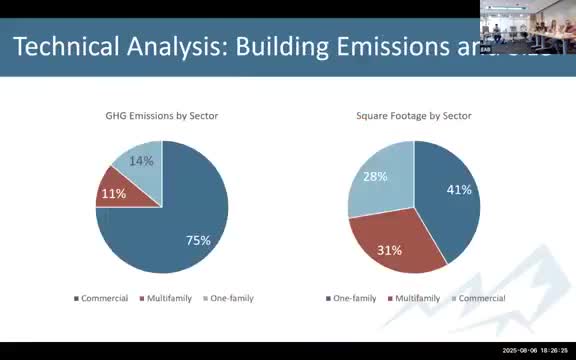Boulder Plans Greenhouse Gas Emission Reduction Strategies for Commercial Buildings
August 08, 2025 | Boulder, Boulder County, Colorado
Thanks to Scribe from Workplace AI , all articles about Colorado are free for you to enjoy throughout 2025!

This article was created by AI using a video recording of the meeting. It summarizes the key points discussed, but for full details and context, please refer to the video of the full meeting. Link to Full Meeting
The board emphasized the need to target GHG emission reductions, particularly in the commercial sector, where most buildings are heated and cooled using fossil fuels. Currently, only 15% of commercial buildings utilize electric heating and cooling systems. The analysis also highlighted that approximately 50% of commercial buildings use electric water heaters, while the other half rely on gas heaters. In residential areas, the situation is similar, with two-thirds of homes not using electric heating.
The board discussed the lack of central air conditioning in about half of Boulder’s buildings, noting that many rely on alternative cooling methods, such as window units or evaporators. Alarmingly, around 26% of mobile homes in the area lack any form of cooling. This has prompted the city to develop emergency cooling responses for extreme heat situations, as 25% of residential housing is at risk during heat waves.
The meeting concluded with a review of cost analysis and upgrade recommendations aimed at improving energy efficiency and reducing emissions across both commercial and residential sectors. The board's discussions underscored the urgency of addressing climate resilience and the need for strategic actions to mitigate the impacts of climate change in Boulder.
Converted from 8-6-25 Environmental Advisory Board Meeting meeting on August 08, 2025
Link to Full Meeting
Comments
View full meeting
This article is based on a recent meeting—watch the full video and explore the complete transcript for deeper insights into the discussion.
View full meeting
